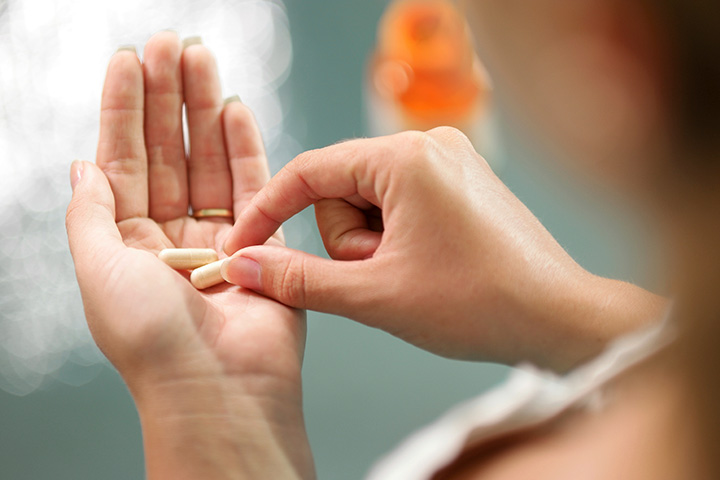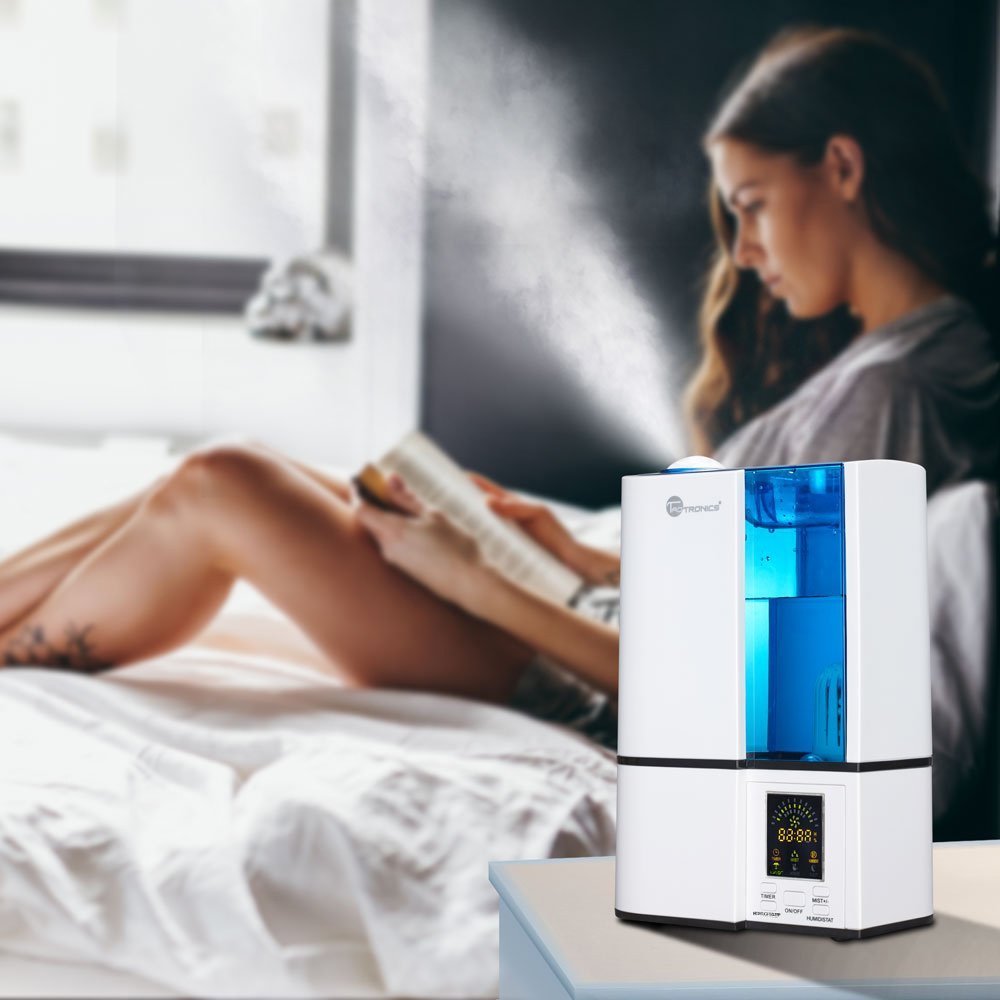Four pairs of hollow cavities comprise the sinus system. The frontal sinuses are located in the forehead, the maxillary sinuses behind the check bones, the ethmoid sinuses between the eyes, and the sphenoid sinuses behind the eyes. The sinuses are normally filled with air but can become blocked and filled with fluid and germs, causing infection. Sinuses are covered with a protective mucous layer and small hairs or cilia that repel bacteria, viruses, and fungi. Nevertheless, germs can evade this protective layer, causing blockage, fluid buildup and infection.
What Is Sinus Infection?
 Sinusitis, also called sinus infection, is caused by inflammation or swelling of the sinuses, which are located behind the eyes, nose and cheeks. This inflammation can lead to pressure in those areas and persistent headaches. Symptoms of sinusitis often mimic those of the common cold and can include mucus buildup, nasal congestion, bad breath, cough and sore throat.
Sinusitis, also called sinus infection, is caused by inflammation or swelling of the sinuses, which are located behind the eyes, nose and cheeks. This inflammation can lead to pressure in those areas and persistent headaches. Symptoms of sinusitis often mimic those of the common cold and can include mucus buildup, nasal congestion, bad breath, cough and sore throat.
Acute sinusitis is typically shorter than eight weeks in duration and recurs no more than three times per year, with each occurrence lasting no longer than ten days. Acute cases generally respond well to the best sinus medicine your doctor prescribes. In contrast, chronic sinus infections persist longer than eight weeks and can recur more than four times in one year. Symptoms can last longer than twenty days. Long-term, chronic sinusitis is the most common type.
Best OTC Sinus Medicines
Since sinus problems have different causes, it's important to accurately assess your symptoms before buying over-the-counter (OTC) medications. If you have a cold or seasonal allergies, OTC medications will usually work well. However, if you experience sinus pain, tooth pain, fever, or if your sinus congestion lingers longer than ten days, see your doctor. Antibiotics may be prescribed for sinusitis caused by bacteria.
Antibiotics cannot be used to treat a sinus infection caused by a virus, however. Nevertheless, OTC medications, like decongestants, expectorants, analgesics and antihistamines, can relieve certain symptoms but the functions of each medication are different.
1. Decongestants
Decongestants are often the best meds because they work to break up the nasal congestion. Expectorants may be used in combination with decongestants to provide increased relief of mucus-related symptoms. Sleepiness is a common side effect of decongestants and expectorants, so you may want to limit their use to nighttime only.
The importance of choosing the right decongestant cannot be overstated. The following information will help you understand these remedies and what will work best for you.
- Pseudoephedrine is the most effective decongestant for opening the nasal passages and restoring clear breathing. Pseudoephedrine (Sudafed) was once the mainstay of the over-the-counter market, because it has been misused by certain individuals as an ingredient in illegal substances, so access to this product is now restricted. In this case, you'll have to ask for it at the pharmacist's counter and can only get it in small quantities, but the effectiveness of the medication makes it worth the minor inconvenience. Due to the stimulant effect, pseudoephedrine can cause insomnia. You may want to take this medication earlier in the day, or you may risk sleeplessness at bedtime. People with high blood pressure, heart arrhythmia or glaucoma should consult a physician before taking it.
- Phenylephrine is now used in place of pseudoephedrine as a on-the-shelf decongestant. It's a weaker medication that doesn't provide the same level of symptom relief as pseudoephedrine and its side effects and drug interactions are similar with pseudoephedrine.

- Nasal decongestant sprays like oxymetazoline have an added benefit of decongesting on contact. These nasal sprays can be used at night to decongest while avoiding the insomnia caused by oral decongestants like pseudoephedrine or phenylephrine. Oxymetolazone is best used for durations less than three days. Using this medication for longer periods can result in rebound congestion -- a condition called rhinitis medicamentosa, which is even worse than the original symptoms. Using twelve-hour formulations and limiting treatment duration can reduce the occurrence of rhinitis medicamentosa.
2. Expectorants
Here comes another best sinus medicine. Expectorants work best on sinus infections where congestion has settled in the chest or throat and causes coughing. Expectorants work to thin the mucus. The sinusitis sufferer then can eliminate the thinned mucus through coughing, leading to faster relief of congestion.
3. Pain Relievers
If pain and pressure caused by sinus infection are major complaints, anti-inflammatory pain-relievers like acetaminophen and ibuprofen may be your best option. An additional benefit: These medications may also reduce or eliminate fever.
4. Antihistamines
Individuals with severe allergies often experience maximum symptom relief from antihistamines, which help alleviate runny noses, and prevent sneezing, congestion and coughs by thickening mucus. Antihistamines work to block the effects of histamines produced during allergic reactions, so allergy sufferers may benefit from regular use.
Others Ways of Avoiding and Minimizing Sinus Problems
Except those best sinus medicines mentioned above, there are many other effective home remedies that help you alleviate sinus discomforts.
- Know the triggers. Understanding the causes of your sinus problems can help you avoid triggers. Allergies that cause inflammation of the nasal membranes can cause sinus blockage, which stops the nose from draining as usual, leading to sinus inflammation. And dry nasal passages aggravate sinus problems.
- Keep yourself cool. Warmer indoor temperatures can cause dry nasal membranes. Experiment with the settings on your thermostat. When you're no longer waking up with congestion or nosebleeds, you've found the ideal temperature.
- Get a Humidifier. Humidifiers, by increasing the moisture in the air you breathe, help prevent nasal passages from drying out. Many experts agree that using a humidifier in the bedroom during the drier months between October and April can help prevent nasal dryness. When using a humidifier, it's important to maintain the appropriate level of humidity -- one that is moist enough to ward off nasal dryness while not encouraging the formation of dust mites or molds that thrive in environments of greater than 50% humidity.

- Ventilate your rooms. Regularly ventilating your house can keep you from breathing stale air. Just be sure to avoid opening your windows on high-pollen days which can trigger allergies. Some experts attribute regular cleanings of the air ducts on heating and cooling systems to reduced allergy and sinus problems.
- Stay hydrated. Doctors have long asserted the importance of drinking plenty of fluids to maintain health. At least a quart a day is optimal, and most of this should be plain water.
- Irrigate the nasal cavity. Sinus rinses irrigate the sinus cavity, loosening and flushing out mucus.
- Mix about 16 ounces of distilled or previously boiled water with one teaspoon of salt. Flush mucus and debris from your nasal cavity using a bulb syringe.
- The Neti Pot is another popular method of nasal irrigation. This device looks like a teapot with an elongated spout and can be purchased in most drugstores. Fill the Neti Pot with the same recipe as above. Tilting your head at a 45-degree angle over the sink, place the spout into your top nostril and gently pour the solution into the nasal cavity. The water will flow into the top nostril and out through the bottom nostril. Blow your nose to remove loosened mucus and debris, and then repeat the process on the other side.
- Avoid household irritants. Even measures like taking the best sinus medicine can't beat this tip. Preventing always has the upper hand. If you suffer from sinus problems, choose cleaning products carefully and use them in ventilated areas. Hair spray, cigarette smoke, and products that give off fumes are likely to aggravate your sinus problems, so exercise common sense. If pet dander poses a problem for your sinuses, bathe your pets regularly and have your pet sleep in a different room when possible.
